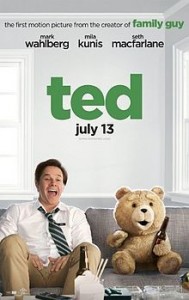MOSTLY, I try to dig into the arts and culture in this blog. But there are times when digital technology demands attention; technology has become the water in which we all — musician and scribe and architect alike — swim.
That’s why I’m especially pleased to nudge readers toward a piece that’s been floating around for a while which even some informed people may have missed: “We need to talk about TED,” in which art and design scholar Benjamin Bratton compares TED talks to American Idol. Even if you’ve read it before, you’re probably rolling your eyes — “that, again?” — it’s worth revisiting. Here’s how he leads off:
In our culture, talking about the future is sometimes a polite way of saying things about the present that would otherwise be rude or risky.
But have you ever wondered why so little of the future promised in TED talks actually happens? So much potential and enthusiasm, and so little actual change. Are the ideas wrong? Or is the idea about what ideas can do all by themselves wrong?
I write about entanglements of technology and culture… So the conceptualization of possibilities is something that I take very seriously. That’s why I, and many people, think it’s way past time to take a step back and ask some serious questions about the intellectual viability of things like TED.
As he says partway down:
I’m sorry but this fails to meet the challenges that we are supposedly here to confront. These are complicated and difficult and are not given to tidy just-so solutions. They don’t care about anyone’s experience of optimism. Given the stakes, making our best and brightest waste their time – and the audience’s time – dancing like infomercial hosts is too high a price. It is cynical.
One of the many good things about this essay — I’ve linked to the Guardian version — is that Bratton delivered it as an actual TED talk (here) at TEDx San Diego. It’s quite electrifying, I think. He gets into all kinds of contradictions in techno-utopianism, Silicon Valley solutionism, and the shallowness of contemporary culture — including what he calls “placebo politics and placebo innovation.”
These issues have only gotten more dire — and the mythology around the benevolent wisdom of our corporate overlords even thicker — since the original speech.
I don’t know the dude, though Bratton was in LA, at the architecture school SCI-Arc, until a few years ago. I feel like someone has tapped into my thinking over the last few years and made it sharper and more focussed. Some of the subjects he gets into in his address show up in my upcoming tome Culture Crash, and I hope I’m able to deliver them with the kind of force he has.


I found your comments pretty interesting (as well as Bratton’s TED Talk), considering a couple of weeks ago I gave a TED Talk at TEDxBuffalo about my work Libertaria: The Virtual Opera, an animated opera created entirely through Internet Collaboration and crowdfunding. And maybe here in Buffalo we are more down to earth and less “overlordly” (is that a word?), but all of the projects discussed at our talk are in existence already, from a Tool Library where inner city folks can rent a tool to fix their house when the urban slumlord won’t to an engaging discussion on Internet addiction and current research in that field and how an Indian dancer is sharing her culture in Buffalo. — For the record, I believe more in dystopia than utopia. It’s my Cuban roots. — Already music has been transformed by digital technology and the reality is that any musician that wants to remain relevant in the ever-changing landscape needs to learn how to harness new technology. And even if a musician considers that they are anti-tech, they still engage in e-mail, using Finale and DAWs for production and creation, and other tools that may not be as innovative as virtual reality, but were once just as radical. Like Bratton mentioned, there are many technologies that we most likely wished wouldn’t happen like file-sharing and pirating of materials. On the other hand, these technologies have been here and are not going away, and while the old establishment shudders, for the most part younger and diverse populations that were shut out of old models have found the new way of music creation liberating. Music publishers did not go out of business when the record player was created, nor did video kill the radio star (ask the micropercentage of pop divas that monopolize the airwaves). The future is both scary and exciting and it is up to us to either ascend to the next level or huddle in our caves. Thank you Scott for a provocative post! @dalatindiva